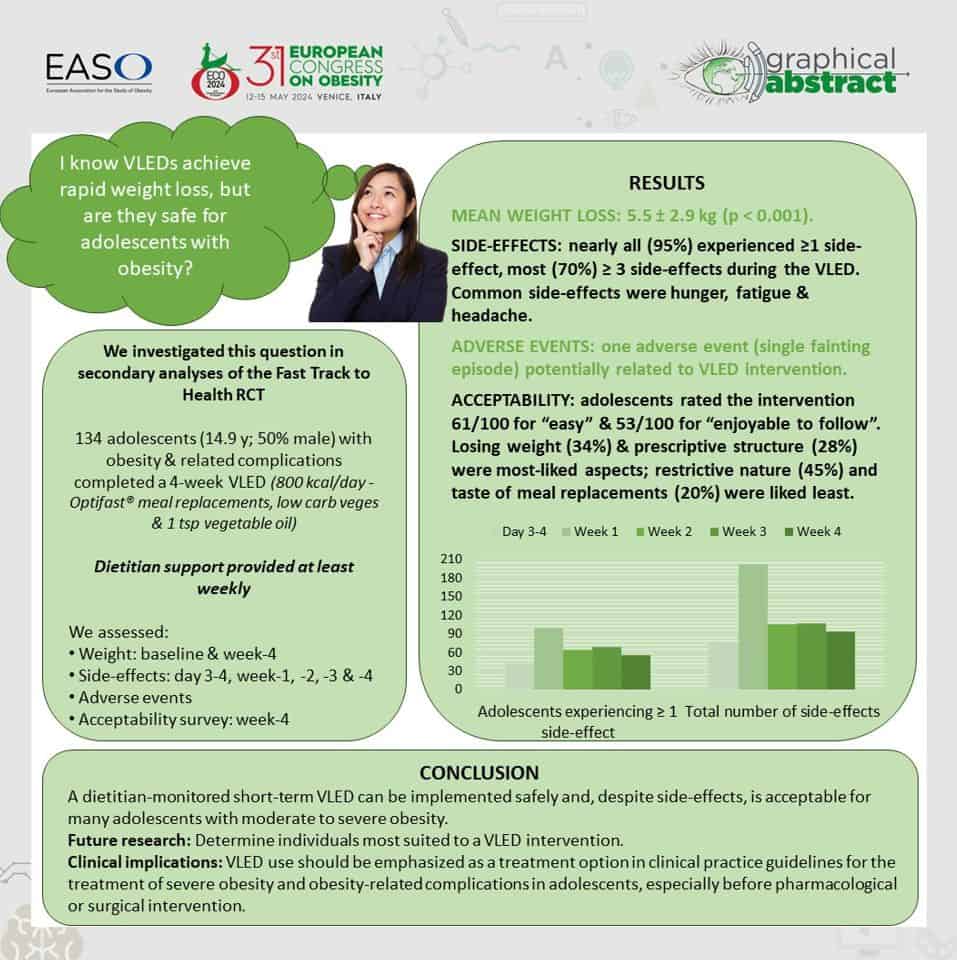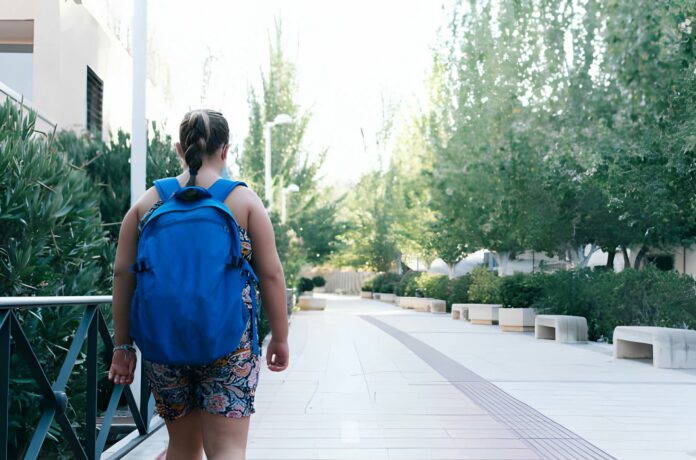Could This New Methodology Be the Future of Weight Loss Treatment? (Maybe Yes)
An alternative to weight loss treatment for young people who do not respond to conventional diet and exercise programmes, according to a new study.
Australian study reveals: Short-term very low calorie diets are safe and acceptable for teens with moderate to severe obesity.
Are you looking for strategies to increase your metabolism and lose weight without having to undergo bariatric surgery or spend hours at the gym? Is There Anything Science Can Offer in Place of Bariatric Surgery and Dieting?
According to a new study that will be presented at the European Congress on Obesity (ECO 2024), very low-energy diets or very low-calorie diets can be used as a transitional measure from bariatric surgery to a healthy, balanced diet for young people who do not respond to traditional diet and exercise programs.
Very low energy diets (VLED) usually include consuming little more than 800 calories daily and consist of meal replacements such as bars and shakes to guarantee that all necessary nutrients are obtained.

Studies have shown that VLEDs may cause young individuals to lose weight quickly, but little is known about the general negative consequences (such as headache, weariness, cramping in the muscles, and constipation) and acceptance of VLEDs in this age group. Additionally, there is little information available on how VLEDs affect young people’s development, heart health, and psychological wellness. As a result, some doctors have been hesitant to prescribe them to patients in this age range.
The University of Sydney, Westmead, Australia’s Dr. Megan Gow and colleagues conducted a sub-analysis of data from Fast Track to Health, a 52-week research on the acceptability of various diet programs for obese teenagers, to get further insight.
The sub-analysis included data from the first four weeks of Fast Track to Health, when individuals followed a nutritionally balanced VLED to jump-start their weight reduction.
141 participants, 70 of whom were female and aged between 13 and 17 years, presented with obesity along with at least one obesity-related complication, such as high blood pressure, insulin resistance, or dyslipidemia.
These participants were assigned to one of two dietary interventions: either consuming 800 calories daily from four Optifast® formulated meal replacement products (which included shakes, soups, bars, and/or desserts) alongside low carbohydrate vegetables (e.g., broccoli, celery, capsicum, mushrooms, and tomatoes) and one teaspoon of vegetable oil, or consuming three Optifast® formulated meal replacements along with one meal consisting of 100−150g lean, cooked meat, low carbohydrate vegetables, and one teaspoon of vegetable oil.
Under the supervision of a dietician, participants received support at least weekly. Their weight was measured at baseline and the end of the fourth week, while side effects were monitored on days 3/4 and after 1, 2, 3, and 4 weeks of the intervention period. Additionally, adolescents completed a survey to evaluate the acceptability of the very low-energy diet (VLED), providing feedback on what aspects they found most and least appealing.
Almost all of the adolescents (134 out of 141), with an average age of 14.9 years and an equal distribution of 50% male, completed the Very Low-Energy Diet (VLED), despite encountering common side effects. On average, participants experienced a weight loss of 5.5 kilograms (equivalent to 12 pounds).
During the VLED, nearly all participants (95%) reported experiencing at least one side effect, with a majority (70%) encountering three or more. Common side effects included hunger, fatigue, headache, irritability, loose stools, constipation, nausea, and difficulty concentrating. Additionally, seven participants contracted viral infections.
The prevalence of side-effects peaked towards the conclusion of the first week, and those who experienced a higher number of side-effects on days 3-4 exhibited greater weight loss by the end of the four-week period. This correlation suggests a potential link to increased adherence to the Very Low-Energy Diet (VLED).
The teenagers scored the intervention 61/100 for “easy to follow” (easy = 100, difficult = 0) and 53/100 for “enjoyable to follow” (enjoyable = 100, not enjoyable = 0 points).
The VLED intervention’s most popular components were weight loss (34% of participants) and prescriptive framework (28% of participants). The restricting nature (45% of participants) and taste of meal replacement items (20%) were the least popular.
The team concludes that a health professional-monitored VLED may be safely deployed in the short term and, despite potential adverse effects, is acceptable to many teenagers with moderate to severe obesity.
Dr. Gow said: “More research is required to determine who would be most suited to a VLED. However, given the associated rapid weight loss, their use should be emphasised in clinical practice guidelines for the treatment of severe obesity and obesity-related complications in adolescents, especially before pharmacological or surgical intervention.
“Adolescents who are seeking treatment for their obesity should see their family doctor to discuss treatment options.”
Image Credit: Getty Images
